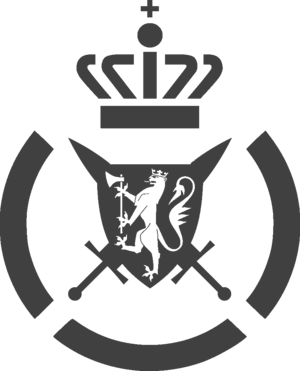Acrean Armed Forces
| Royal Acrean Armed Forces | |
|---|---|
| Försvaret Forces Armées | |
 | |
| Founded | 1432 |
| Service branches | |
| Headquarters | Trier |
| Leadership | |
| King | Leopold IV |
| Minister of Defence | Alexander Storeng |
| Chief of Defence Staff | Eirik Stordalen |
| Personnel | |
| Military age | 17 |
| Conscription | Unenforced, 18 |
| Active personnel | 1,213,049 personnel |
| Reserve personnel | 921,410 personnel |
| Expenditure | |
| Percent of GDP | 5% |
The Royal Acrean Armed Forces encompass the Army, Navy, Air Force, Marine Corps, and to an extent the national gendarmerie of the Kingdom of Acrea which collectively are responsible for the defence of the Acrean state and its overseas territories and dependencies. The Acrean Armed Forces serve to promote Acrea's wider interests, support international defence efforts, and support humanitarian operations. They are headed officially by the King or Queen acting as commander-in-chief, but the constitution has delegated de facto authority over the military to the Chancellor. Acrea has the largest defence budget in Tyran by total amount, though not by percentage of its GDP. It is one of the oldest military forces in Tyran.
The military has played a central role in Acrean affairs since the creation of the modern Acrean state's first standing army in 1432, which is also considered to be the founding date of the Armed Forces. It has seen numerous conflicts involving the region's great powers since its founding, including numerous wars with Acrea's neighbouring Eracuran states over the course of nearly six centuries.
History
Structure
Personnel
The Acrean military is the largest professional military in Tyran with 1,213,049 personnel, and is one of the few fully professional militaries in Tyran. Since 2001, the Ministry of Defence has practiced a "Personnel First" policy, with an emphasis on increasing investment in personnel. Numerous reforms and changes were made as a reflection of this policy; expenditure on personnel including pay, accommodations, facilities, and benefits increased drastically in the decade after the start of the policy. Part of this expenditure was focused on creating what is referred to as a "high-performance environment", which encompasses high quality housing, dining, and wellness facilities (such as fitness centers) in Acrean military installations, all aimed towards enabling soldiers, marines, sailors, and airmen to maintain good physical wellness in an environment which helps promote good mental wellness. Other key aspects focused on livelihood, and include increased opportunities for education and skills training, as well as family support including childcare.
The stated goal of the "Personnel First" policy was to maintain retention; as a professional force, the Acrean military relies heavily on retaining its trained and experienced personnel both as an administrative and readiness matter, as well as a doctrinal necessity. On average, the Acrean military has some of the highest fitness standards for its personnel, with the highest being found in the Royal Acrean Marine Corps and Royal Acrean Army. It promotes a highly gender-equitable environment, as 17% of the Acrean military is composed of women with the highest ratios being found in medical and aviation roles. Fitness test stanards are based on sex, although requirements for different jobs are sex-netural.
Conscription
As the Acrean Armed Forces are a fully professional force, the Ministry of Defence maintains an inactive conscription system. Acrean youth, upon turning 17, are required to be examined both physically and psychologically for military eligibility. If they are found eligible, then they are registered by the Ministry of Defence and may be conscripted whenever the system is activated. There are numerous reasons for which someone may not be considered eligible; physical disability, lack of physical fitness, cognitive deficiencies, or mental health concerns are all reasons as to why an individual may be rejected. In addition, family circumstances may also make an individual ineligible; for instance, single parents are ineligible to be conscripted. Religious concerns do not prevent someone from being registered or conscripted, and there is no right to conscientious objection. Conscription is not limited by gender. In 2009, Parliament voted to allow the extension of conscription to women, and the extension was put in place in 2010.